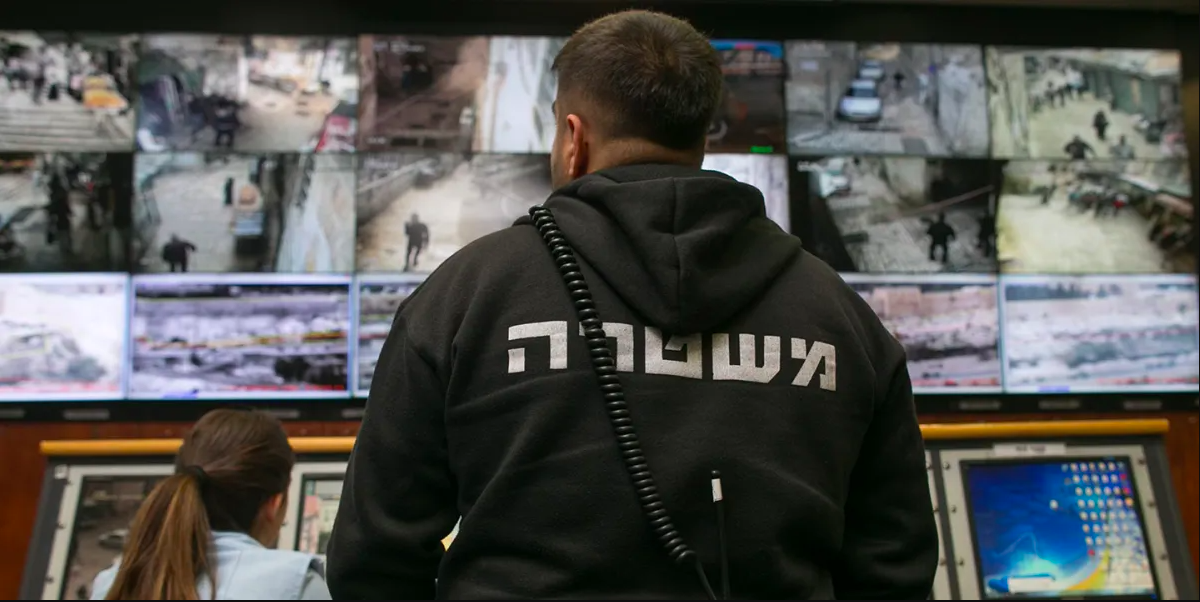
Published 04/04/2024 19:21 | Edited 04/05/2024 08:09
According to an “investigation” by the Israeli digital magazine +972 Magazine and Local Call, the Israeli military has used artificial intelligence to identify bombing targets in Gaza. The tool, known as “Lavender,” reportedly has a 10% error rate, according to six Israeli intelligence officials involved in the program. A source cited in the report stated that humans often serve only as a “rubber stamp” for the machine’s decisions, dedicating only about 20 seconds to each target before authorizing a bombing.
The investigation comes amid growing international pressure on Israel, especially after air strikes that killed seven aid workers in Gaza. Israeli authorities argue that the use of “dumb bombs” – “dumb” unguided missiles – could pose a greater threat to civilians, especially in densely populated areas like Gaza.
Read also: “Conflict in Palestine shows that the Zionist project has failed”

In an interview with Red Portal, International Relations expert Reda Soueid commented on the controversial use of artificial intelligence (AI) in the armed conflict in the Gaza Strip. Soueid, whose research focuses on the Arab National Movement, provides a critical analysis of the dissemination of these practices by an Israeli digital publication.
In summary, Reda Soueid offers a critical perspective on the use of artificial intelligence in armed conflicts, highlighting its ethical, political and humanitarian implications. However, according to him, the revelation of this information seems more like an attempt to justify the deaths of Europeans and Americans, rather than a genuine concern about the ethics of war.
The expert highlighted that the use of facial recognition technology and other forms of surveillance is not new and has been used for decades, in addition to being exported around the world. He also warned of the potential abuse of these technologies, especially when it comes to privacy and human rights violations.
One of Soueid’s deepest concerns was the attempt to attribute responsibility for deaths in armed conflicts to AI, suggesting that this narrative could be a way to absolve the Armed Forces and their soldiers of blame. He emphasized that this tactic was a form of hypocrisy and an attempt to manipulate international public opinion.
Furthermore, Soueid emphasized that the release of this information served more to protect Israel’s image and its exports of military technology than to ensure transparency and justice in conflicts. He mentioned Hezbollah and other armed resistance groups as an example of forces that are effectively challenging Israeli technologies, revealing gaps in its defense systems.
The international analyst raised questions about the international security trade that has developed around Israel and highlighted the growing pressure on the Zionist state due to its inability to achieve stated objectives in recent conflicts.
Cloud of smoke
Soueid highlights the context in which this release of information occurred, noting that it came shortly after the murder of “seven white Europeans,” referring to aid workers from the World Central Kitchen organization, which brought food to Palestinians. It raises the question that this disclosure could be an attempt to satisfy public opinion in countries in the Global North, especially citizens who share a similar identity to the dead.
However, the expert points to a darker truth behind these disclosures, suggesting that the justification offered to the public was a “lame excuse”. He questions the veracity of the narratives presented, which he considers bankrupt, as not even Israel’s supporters believe in them anymore.
“The disclosure of this information serves to justify the death of the seven Europeans and Americans to European public opinion, not to those in power”, emphasizes Soueid. He argued that the rulers of the Global North are aware of what is happening and, in fact, are cooperating with and are part of the genocide in question.
In his critical analysis of the news, Soueid expresses perplexity as to why this particular information was being reported by the Western media. According to him, the discovery that the bombings are being based on AI algorithms rather than human checks is nothing new.
“They seem to say that it is technology that chooses targets and wages war,” declares Soueid, emphasizing the incompatibility of this approach with basic humanitarian principles.
For Soueid, this revelation does not seem to serve any legitimate purpose other than perhaps trying to justify the military attacks. He highlighted the lack of transparency and ethics behind these operations, highlighting that the disclosure of this information does not bring justice or resolve conflicts.
Technological market in the spotlight
Soueid highlights that the use of software intelligence is nothing new, dating back to past decades. He highlighted that facial recognition and other forms of surveillance technology have been used for a long time, including being exported to countries like Brazil.
He expressed skepticism about the intention behind releasing this information, suggesting it could be related to an attempt to revamp the image of Israeli technologies amid recent criticism.
Furthermore, the expert highlighted the use of technology in drones, revealing how it is used to identify and attack targets. He recalled Lebanese Hezbollah leader Hassan Nasrallah’s recent warning of the risks associated with privacy and personal security, emphasizing that citizens could inadvertently become targets of surveillance and attacks due to technology in their own cellular devices and street cameras. and homes connected to WiFi.
When addressing the issue of responsibility, Soueid questioned whether it was fair to attribute the high number of deaths in armed conflicts exclusively to the machine, suggesting an attempt to exempt soldiers from blame. He denounced this idea as hypocrisy, highlighting the need to hold individuals accountable for their actions.
Soueid also highlights the technological challenges faced by Israel, especially after the evident failure of its military intelligence on October 7, 2023. The invasion of Israel by Hamas, with the kidnapping of hundreds of Israelis and the beginning of the current insurrection, laid bare the military’s incapacity and technology and internal conflicts in Benjamin Netanyahu’s government policy.
For Soueid, the dissemination of information about the level of technology that Israel exports brings a gap between propaganda and reality. He emphasized that recent military actions on October 7 revealed a vulnerability in Israeli technology, something the country has been trying to publicly camouflage.
“The Iraqi resistance manages to penetrate some drones coming from Iraq, hitting Israeli targets inside Palestine,” says Soueid, highlighting the deficiencies in the Israeli anti-aircraft defense system. He also mentions successful attacks carried out by the Yemenis, highlighting an ongoing technology war in the region.
The expert points to the international security trade centered around Israel, noting that the concern of the West, especially the United States, is protecting the Israeli Zionist state from collapse. It challenges the narrative of military success propagated by the Israeli government in Gaza, highlighting the lack of concrete progress and the loss of legitimacy in the eyes of global public opinion.
“The resistance knows about the military and technological power of the Zionist enemy and tries to nullify any advantages they may have”, says Soueid. His observations suggest that despite Israel’s attempts to maintain an image of technological superiority, the reality is much more complex, with significant challenges facing the country’s military forces.
Source: vermelho.org.br

